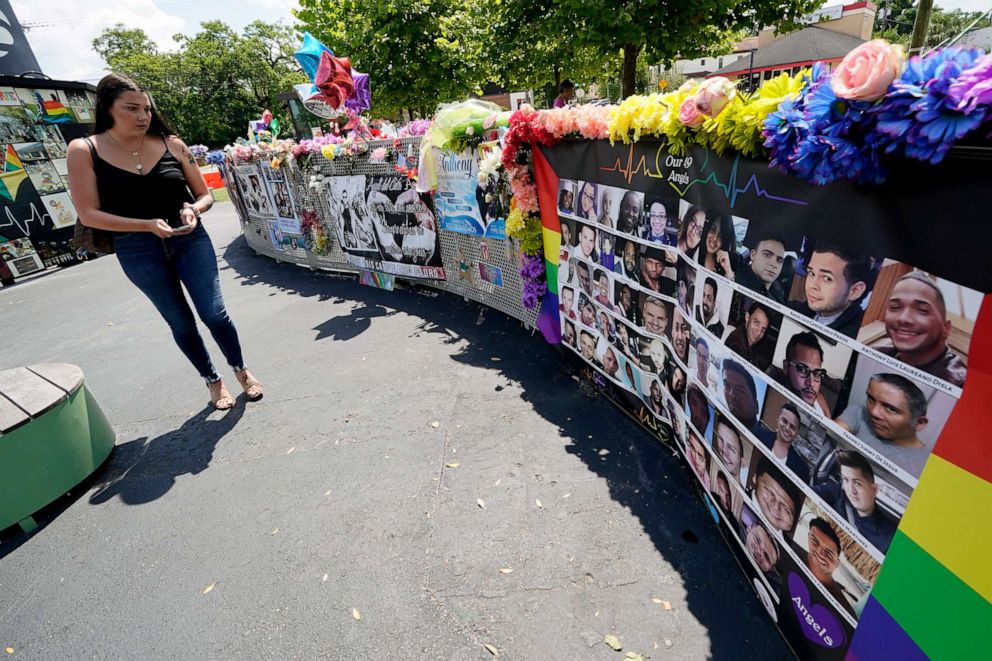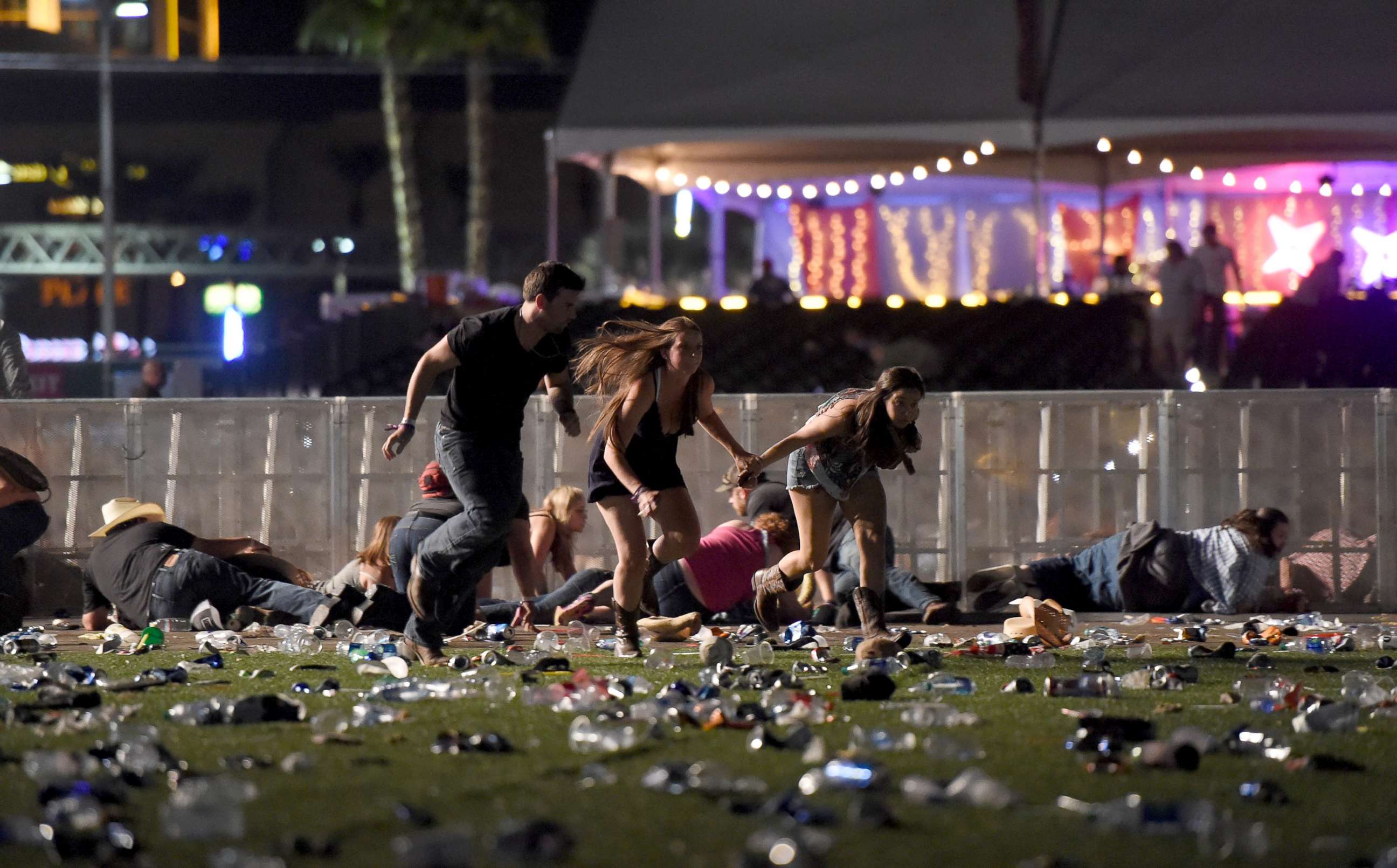Wow, Father Of Georgia School Shooter Charged With Involuntary Manslaughter & 2nd Degree Murder
Friday, December 8, 2023
Friday, December 1, 2023
Thursday, November 30, 2023
Voter-approved Oregon gun control law violates the state constitution, judge rules
Voter-approved Oregon gun control law violates the state constitution, judge rules
FILE - Firearms are displayed at a gun shop in Salem, Ore., Feb. 19, 2021. An Oregon judge has ruled that a voter-approved gun control law violates the state constitution. The decision on Tuesday, Nov. 21, 2023, continues to block it from taking effect and casts fresh doubt over the future of the embattled measure. (AP Photo/Andrew Selsky, File)
PORTLAND, Ore. (AP) — A voter-approved Oregon gun control law violates the state constitution, a judge ruled Tuesday, continuing to block it from taking effect and casting fresh doubt over the future of the embattled measure.
The law, one of the toughest in the nation, was among the first gun restrictions to be passed after a major U.S. Supreme Court ruling last year changed the guidance judges are expected to follow when considering Second Amendment cases.
The decision was handed down by Circuit Court Judge Robert S. Raschio, the presiding judge in Harney County in rural southeast Oregon.
The law requires people to undergo a criminal background check and complete a gun safety training course in order to obtain a permit to buy a firearm. It also bans high-capacity magazines.
Measure 114 has been tied up in state and federal court since it was narrowly approved by voters last November.
The state trial stemmed from a lawsuit filed by gunowners claiming the law violated the right to bear arms under the Oregon Constitution.
The defendants include such Oregon officials as Democratic Gov. Tina Kotek, Attorney General Ellen Rosenblum and State Police Superintendent Casey Codding. They can appeal to the Oregon Court of Appeals and the case could ultimately go to the Oregon Supreme Court.
Rosenblum plans to appeal the ruling, her office said in an emailed statement.
“The Harney County judge’s ruling is wrong,” the statement said. “Worse, it needlessly puts Oregonians’ lives at risk. The state will file an appeal and we believe we will prevail.”
One of the plaintiffs’ attorneys, Tyler Smith, welcomed the ruling.
“We hope the Attorney General’s office will realize that the ill-conceived and unconstitutional ballot measure should not be defended,” he said in an email.
The decision is likely “the first opening salvo of multiple rounds of litigation,” said Norman Williams, constitutional law professor at Willamette University.
During an appeals process, it’s likely that the injunction freezing the law would remain in place. Raschio was the judge who initially blocked it from taking effect in December.
The different lawsuits over the measure have sparked confusion over whether it can be implemented.
In a separate federal case over the Oregon measure, a judge in July ruled it was lawful under the Second Amendment of the U.S. Constitution.
But because Raschio found it to be invalid under the Oregon Constitution during the state trial, the law remains on hold. This is because state courts can strike down a state law that violates the state constitution, even if it’s permissible under the federal constitution.
“The U.S. Constitution sets a floor, not a ceiling, for rights, so state constitutions can be more rights-protective than the federal constitution,” Williams said.
Because of this, Oregon officials would have to win in both state and federal court for the law to take effect, he said.
During the state trial, the plaintiffs and the defense clashed over whether the permit-to-purchase provision would hamper people from exercising their right to bear arms. They also sparred over whether large-capacity magazines are used for self-defense and whether they’re protected under the Oregon Constitution.
The plaintiffs argued that firearms capable of firing multiple rounds were present in Oregon in the 1850s and known to those who ratified the state constitution, which took effect in 1859. The defense, meanwhile, said modern semiautomatic firearms were “technologically distinct from the revolvers and multi-barrel pistols that were available in the 1850s.”
In his opinion, Raschio disputed the defense’s claim that banning large-capacity magazines would help make mass shootings less deadly. He recognized that mass shootings “have a significant impact on the psyche of America when they happen,” but said they “rank very low in frequency.”
“The court finds that 10-round magazine bans are no panacea to prevent a mass shooter,” he wrote.
“People tend to believe these events are prolific and happening all the time with massive levels of death and injury,” he added. “The court finds this belief, though sensationalized by the media, is not validated by the evidence.”
The Oregon measure was passed after a U.S. Supreme Court ruling in June 2022 created new standards for judges weighing gun laws. That decision fueled a national upheaval in the legal landscape for U.S. firearm law.
The ruling tossed aside a balancing test that judges had long used to decide whether to uphold gun laws. It directed them to only consider whether a law is consistent with the country’s “historical tradition of firearm regulation,” rather than take into account public interests such as promoting public safety.
Since then, there has been confusion about which laws can survive. Courts have overturned laws designed to keep weapons away from domestic abusers and felony defendants. The Supreme Court heard a case on one such law this month and is expected to issue a ruling by early summer.
In her separate federal ruling over the Oregon law, U.S. District Judge Karin J. Immergut appeared to take into account the Supreme Court’s new directive to consider the history of gun regulations.
She found large-capacity magazines “are not commonly used for self-defense, and are therefore not protected by the Second Amendment.” Even if they were protected, she wrote, the law’s restrictions are consistent with the country’s “history and tradition of regulating uniquely dangerous features of weapons and firearms to protect public safety.”
She also found the permit-to-purchase provision to be constitutional, noting the Second Amendment “allows governments to ensure that only law-abiding, responsible citizens keep and bear arms.”
The plaintiffs in the federal case, which include the Oregon Firearms Federation, have appealed the ruling to the 9th U.S. Circuit Court of Appeals. The case could potentially go all the way to the U.S. Supreme Court.
Nine other states have permit-to-purchase laws similar to the Oregon measure, including New York, Hawaii, Maryland and Massachusetts, according to data compiled by the Giffords Law Center to Prevent Gun Violence.
Apart from Oregon, 11 states including California, along with Washington, D.C., limit large-capacity magazines holding more than 10 rounds, according to the Giffords Center. California’s ban on higher-capacity magazines remains in effect while the state fights a lower court’s ruling from September that the law is unconstitutional.
Monday, November 27, 2023
Sunday, November 26, 2023
Thursday, November 9, 2023
How mass shootings have historically prompted changes in gun laws
How mass shootings have historically prompted changes in gun laws
Maine's gun laws are under scrutiny after the Lewiston shooting.
Recent mass shootings have put a spotlight on the gun laws of the states in which these tragedies happened and the actions that local legislators take to address the growing impact of gun violence on the U.S.
Maine has come under scrutiny for its lack of gun restrictions following the Oct. 25 shooting in Lewiston, Maine, that left 18 people dead and injured 13 more.
The state, despite having Democratic control of the legislature and the governor's seat, has failed to push stronger gun laws. Some Maine legislators have since begun promising stronger measures to curb gun violence following the tragedy.
ABC News took a look at several states that experienced some of the deadliest shootings in the U.S. and what laws were implemented following the respective shootings.
Florida
Florida has experienced several major mass shootings in recent years. In June 2016, a gunman opened fire in an LGBTQ nightclub in Orlando. Forty-nine people were killed and dozens more were injured.
In 2018, Marjory Stoneman Douglas High School in Parkland became the site of a mass shooting in which 17 people were killed and 17 others were injured.
Following the 2018 shooting, Florida enacted an Extreme Risk Protection Order law to enable law enforcement to petition a court "to temporarily prevent individuals who are at high risk of harming themselves or others from accessing firearms or ammunition."
"Every student in Florida has a right to learn in a safe environment and every parent has the right to send their kids to school knowing that they will return safely at the end of the day," said then-Gov. Rick Scott before signing the bill.
Lawmakers also raised the minimum age to purchase a gun to 21 and turned the ownership of bump stocks, which could make a semiautomatic rifle fire more rapidly, into a felony.
However, in more recent years, some legislators have worked to weaken gun laws in the state, including eliminating the requirement of a permit for concealed carry.

Nevada
In 2017, 58 people were killed and hundreds injured after a gunman opened fire from the 32nd floor of the Mandalay Bay Resort and Casino in Las Vegas, Nevada. Two victims would later succumb to injuries in the years following the massacre.
Since then, the state has enacted gun safety policies including universal background checks, an Extreme Risk law similar to Florida's, and requiring that guns be stored safely away from children.
"This past session, Nevadans stood together and took bold action to try and prevent these tragedies in the future," then-Gov. Steve Sisolak said in a 2019 press conference at the time after signing the bill.
Legislators also banned bump stocks, which had been used in the 2017 shooting. However, the law is being challenged in court.
Several recent gun restriction efforts in Nevada have faltered.
Gov. Joe Lombardo has vetoed three bills -- one would have restricted the purchase, possession or ownership of a firearm by a person who committed or attempted to commit a crime motivated by bias.
The other two would have prohibited the possession of firearms under certain circumstances, like near polling places, and would have barred people under the age of 21 from possessing certain firearms, including semiautomatic shotguns and assault weapons.
"I will not support legislation that infringes on the constitutional rights of Nevadans," Lombardo said in a May online statement at the time. "Much of the legislation I vetoed today is in direct conflict with legal precedent and established constitutional protections. Therefore, I cannot support them."

Texas
In May 2022, 19 children and two teachers were killed when a gunman opened fire with an AR-15-style rifle at Robb Elementary School in Uvalde, Texas.
Anti-gun violence activists and those affected by the shooting have had little success in changing gun laws in the state following the tragedy.
Families of the victims fought to pass a raise-the-age law that would have raised the age to buy assault rifle-style weapons from 18 to 21. However, legislative leaders in the state were against the measure, including Gov. Greg Abbott who called it "unconstitutional."
However, lawmakers have passed a law to require counties to send information on juvenile mental health cases for review for the National Instant Criminal Background Check System. The Uvalde shooter was 18.

New York
After 10 people, all African American, were killed in a racially motivated mass shooting at a supermarket in Buffalo, New York, in May 2022, Gov. Kathy Hochul signed a ten-bill package of laws to address gun violence in the state.
"Gun violence is an epidemic that is tearing our country apart," said Hochul in a statement on the signing. "Thoughts and prayers won't fix this, but taking strong action will."
The legislation included limiting the purchase of body armor to only specific professions and restrictions on the purchase of semiautomatic rifles to people over 21, strengthening red flag laws, enhancing reporting by law enforcement to the state and federal gun databases and closing "loopholes" in gun law.
Because of the racial nature of the crime, legislators also included new requirements on social media networks to provide policies to respond to hateful conduct on their platform. The legislation also created a task force to investigate the role of social media in facilitating extremism and terrorism online.

Colorado
A mass shooting at a Colorado Springs LGBTQ bar called Club Q killed five people and left over a dozen injured in November 2022, reopening wounds from the Columbine High School shooting in 1999.
Following the shooting, Gov. Jared Polis signed several gun restriction measures.
"Today we are taking some important steps to help make Colorado one of the ten safest states, and building upon the ongoing work to make Colorado communities safer," said Polis in a statement on the signing.
This includes raising the purchasing age for all guns to 21, establishing a three-day waiting period between when people purchase a gun and when they receive it, and strengthening the state's red flag laws that allow guns to be temporarily removed from a person who poses a risk to themselves or others.
Another law enhances gun violence victims' ability to sue the firearms industry.
Secret Service blames Trump for what they called a "success" when a gunman got on property
Federal Judges Rule AR-15s Are Not Protected By The Second Amendment
Gun Control Myths: How politicians, the media, and botched "studies" have twisted the facts on gun c
S&W 638 Bodyguard Review
BREAKING: Nashville manifesto released, but there's far more to go!
-
Why is the term " gun buyback" constantly utilized by a government if its citizens did not originally buy them from the governmen...
-
The debate for gun control is never-ending. Those in favor of it feel that taking away guns will take away gun violence. Those that argue a...





